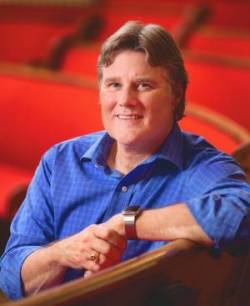Is today really that bad?
Was yesterday really that good?
By N. Graham Standish
We tend to look at the past wistfully, the present critically, and the future fearfully. But as Christians we are called to look at life through a different lens. We are called to look at the past realistically, the present faithfully, and the future hopefully.
Do you remember how great life used to be? I mean before we had cell phones and computers and internet and email and Facebook and Snapchat and Instagram and,… and,… and,…? Do you remember when people used to pick up their phones and actually talk with each other? Do you remember when we used to be able to go through the day without hearing a ringtone or feeling a buzz? Weren’t those wonderful times?
It depends on how we look at them. Yes, people could pick up a phone and talk, but that doesn’t mean they did. Many families are closer now because of modern technology. Back then, we didn’t actually know what our kids were doing once they left home for the evening on a date. Certainly trying to get tickets to a sporting event, a play, flights, a concert, or anything was a lot harder. It seemed like a golden age, but there are things about today that are golden, too. We just won’t notice how golden for another 30 years.
Do you remember when everyone was much more self-reliant, people got along with each other, people didn’t argue as much, and life was simpler? It depends on how you look at it. Blatant bigotry was much more acceptable, women were less equal, there were fewer opportunities to feel self-reliant, and the country was torn apart by protests over civil rights, war, equal rights, equal access, and so much more.
The point is that we’ve always tended to look at the past wistfully, the present critically, and the future fearfully. But much of the past was terrible, and our present/their future has become much better. We don’t see it because any present time still has many conflicts and problems. Our view of the past is always shrouded by clouds of “wist.”
We’ve always tended to look at the past wistfully, the present critically, and the future fearfully.
When we look at the past wistfully, the present critically, and the future fearfully, it actually harms us spiritually. How? By allowing us to act as though God was more present in the past, while diminishing how God is calling us to serve today. The truth is that in so many ways the present is better than the past, but in any present age we are always called to make today better than yesterday, and tomorrow better than today.
To do this we first have to get rid of the “golden age” dust we tend to sprinkle over our memories so we can look realistically at the past with all its warts. The further back we go, the worse the world really was, especially if we weren’t born into more privileged circumstances. If you were an immigrant, an African-American, Latino, poor, or at a disadvantage in some other way, life was harder, and sometimes it could be brutal. People didn’t love each other as much as we suppose, and much of the past missed God’s mark.
Second, we’re called to look at the present faithfully—to ask, “God, how are you calling me to make this world better?” How are we called to make compassion, patience, kindness, generosity, love, and peace more tangible and more available? We are all called to work in the world to share Christ’s love so that future generations can wistfully look at our times as a golden age, even if their age is better.
Finally, we are called to look at the future hopefully, trusting that we are part of God’s work to always make it better than the present and the past. As Christians, we are called to discourage discouragement. In other words, never give up hope that God is at work, and no matter how bad today may be, there are many, many blessings to come if we are willing to work to bear them into the world.
The Rev. N. Graham Standish, Ph.D., M.S.W. (www.ngrahamstandish.org) is senior pastor of Calvin Presbyterian Church in Zelienople, Pennsylvania (www.calvinchurchzelie.org). He is the author of seven books on spirituality and church transformation, and is an adjunct faculty member of Pittsburgh Theological and Tyndale Seminaries. He also has a background as a spiritual director, and as an individual and family therapist.